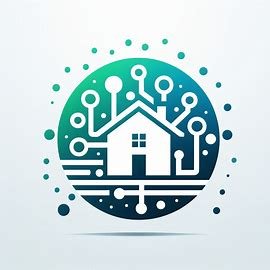Innovative Technology Transformations in the Modern Age
In today’s rapidly evolving digital landscape, technologicalhttps://bestsmartblogs.com innovation is the cornerstone of progress and development. The pace at which technology is advancing is unprecedented, creating a plethora of opportunities and challenges. This article delves into the multifaceted realm of technological innovation, exploring its profound impact on various industries and society at large.

The Evolution of Technological Innovation
Technological innovation has undergone significant transformations over the decades. From the invention of the steam engine in the 18th century to the advent of the internet in the late 20th century, each era has witnessed groundbreaking advancements that have reshaped the way we live and work. The current era, characterized by rapid digital transformation, is no exception.
The Role of Artificial Intelligence and Machine Learning
Artificial Intelligence (AI) and Machine Learning (ML) are at the forefront of technological innovation. These technologies are revolutionizing industries by automating processes, enhancing decision-making, and providing predictive insights. AI and ML are being deployed in various sectors, including healthcare, finance, manufacturing, and retail, to streamline operations and improve efficiency.
Healthcare: Revolutionizing Patient Care
In healthcare, AI-powered systems are being used to diagnose diseases, predict patient outcomes, and personalize treatment plans. Machine learning algorithms analyze vast amounts of medical data to identify patterns and provide accurate diagnoses, leading to better patient care and outcomes.
Finance: Enhancing Risk Management
In the finance industry, AI and ML are transforming risk management and fraud detection. Financial institutions are leveraging these technologies to analyze transaction data, identify fraudulent activities, and mitigate risks. This not only enhances security but also improves customer trust and satisfaction.
The Rise of the Internet of Things (IoT)
The Internet of Things (IoT) is another pivotal aspect of technological innovation. IoT refers to the network of interconnected devices that communicate and exchange data. This technology is transforming homes, cities, and industries by enabling real-time monitoring and control.

Smart Homes: Enhancing Everyday Living
In the realm of smart homes, IoT devices such as smart thermostats, security systems, and appliances are making everyday living more convenient and efficient. These devices can be controlled remotely, providing homeowners with greater control over their environment and energy consumption.
Smart Cities: Building Sustainable Urban Environments
Smart cities are leveraging IoT to create sustainable and efficient urban environments. IoT-enabled infrastructure, such as smart traffic lights and waste management systems, are optimizing resource usage and reducing environmental impact. This is crucial for addressing the challenges posed by urbanization and climate change.
Blockchain Technology: Redefining Security and Transparency
Blockchain technology is redefining security and transparency in various sectors. Originally developed as the underlying technology for cryptocurrencies, blockchain is now being used in supply chain management, healthcare, and finance to enhance data security and transparency.
Supply Chain Management: Ensuring Authenticity and Efficiency
In supply chain management, blockchain provides an immutable record of transactions, ensuring the authenticity and integrity of products. This technology is particularly beneficial in industries such as food and pharmaceuticals, where traceability and quality assurance are critical.
Healthcare: Securing Patient Data
Blockchain is also making strides in healthcare by securing patient data and ensuring privacy. Healthcare providers are using blockchain to create secure and transparent systems for managing patient records, reducing the risk of data breaches and ensuring compliance with regulatory standards.
Augmented Reality (AR) and Virtual Reality (VR): Transforming Experiences
Augmented Reality (AR) and Virtual Reality (VR) are transforming the way we experience the world. These technologies are being used in gaming, education, and retail to create immersive and interactive experiences.
Gaming: Creating Immersive Worlds
In gaming, AR and VR are creating immersive worlds that provide players with a more engaging and realistic experience. These technologies are pushing the boundaries of traditional gaming, offering new possibilities for game design and player interaction.
Education: Enhancing Learning
In education, AR and VR are enhancing learning by providing students with interactive and immersive educational experiences. These technologies enable virtual field trips, hands-on learning, and simulations that make learning more engaging and effective.
The Impact of 5G Technology
The rollout of 5G technology is set to revolutionize connectivity and communication. With its high-speed, low-latency capabilities, 5G is enabling new possibilities for industries such as autonomous vehicles, smart cities, and telemedicine.
Autonomous Vehicles: Enabling Real-Time Communication
In the automotive industry, 5G is enabling real-time communication between autonomous vehicles and infrastructure. This is crucial for the safe and efficient operation of self-driving cars, as it allows for real-time data exchange and decision-making.
Telemedicine: Expanding Access to Healthcare
In healthcare, 5G is expanding access to telemedicine by enabling high-quality video consultations and remote monitoring. This is particularly beneficial in rural and underserved areas, where access to healthcare services is limited.
The Future of Technological Innovation
The future of technological innovation is bright and full of potential. As we continue to explore and develop new technologies, we must also address the challenges and ethical considerations that come with them. Ensuring data privacy, managing the impact of automation on the workforce, and addressing the digital divide are crucial for creating a sustainable and inclusive future.
In conclusion, technological https://www.googleadservices.com/pagead/aclk?sa=L&ai=DChcSEwi07tK8hs-HAxWIUkECHRqqC2IYABABGgJ3cw&ase=2&gclid=CjwKCAjwnqK1BhBvEiwAi7o0Xyd8SAhg_2WHYsEb6QXR4_Y44An8_jQoMZjokOU_yCqhvFAI_Qh9BxoCoU0QAvD_BwE&ohost=www.google.com&cid=CAESVuD20sX3M_0mEpLai0vi1dugZatn0B7TTlBA0KUmZJZlWe5j53GX4KSKj-9UciqAOShOfLhUdLh6ylQc_CWExfB-7IIVmQbOF4cn9AgRCti8k0vT71eu&sig=AOD64_1QkKQf0XXNzQ3h1SSoyF6U-78pAg&q&nis=4&adurl&ved=2ahUKEwiwwsq8hs-HAxX56wIHHbk2PWUQ0Qx6BAgEEAEinnovation is transforming the way we live, work, and interact with the world. From AI and IoT to blockchain and 5G, these advancements are creating new opportunities and challenges. As we navigate this rapidly changing landscape, we must embrace innovation while also addressing the ethical and societal implications.
